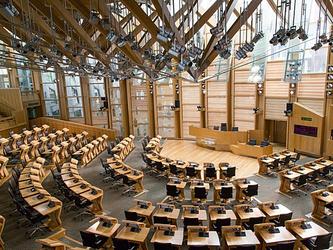Audit report calls for ‘lessons’ to be shared following Scotland’s census

The census in Scotland took place in March 2022, after it was postponed for a year due to concerns over the impact of Covid-19 – the first time a population census had been delayed in the UK since the second world war.
The postponement also meant that Scotland’s census took place a year after the censuses in England and Wales, and Northern Ireland, in March 2021. The UK’s three decennial census surveys usually take place on the same day.
The census deadline was extended by a month after initial concerns over a return rate of 79%, which increased to 89% following the extension. The original target was at least 90%. The National Records of Scotland has estimated that the extension will cost £6m.
The census in England and Wales reported an overall return rate of 97%, while the census in Northern Ireland also saw a return rate of 97%.
There was ‘no single reason’ why Scotland’s census saw a lower response rate than planned, the audit report concluded.
Audit Scotland carried out the report as a follow-up to the one it published last year, as part of the annual audit process, to track continued progress with the census programme.
NRS conducted a primarily digital census, with 89% of responses completed online, exceeding its target of 80%. However, over half of the 600,000 paper forms issued were not completed.
In May 2022 and following concerns about the census return rate, the Registrar General for Scotland set up a group of independent census and data specialists to support the programme as it moved out of the collection phase.
The group concluded in June 2022 that NRS had a ‘solid foundation’ to continue to the next phase of the census, however, NRS will be more reliant on the use of administrative data than planned to produce census outputs.
Data from the census is used to inform planning and guide public spending decisions for the next 10 years.
Stephen Boyle, auditor general for Scotland, said: “The census is a vital data gathering tool that allows public services to be planned properly.
“It’s important that National Records of Scotland establishes why the return rate was significantly lower than the other countries in the UK. Those lessons should be shared and will be crucial to planning for future censuses and surveys.”
A National Records of Scotland spokesperson said: “As is the case across the UK and many countries across the globe, NRS’s modern census will bring together data from the initial census returns, the Census Coverage Survey and administrative sources. NRS will bring these elements together using statistical methods and will deliver the high quality census outputs and population estimates required by users.
“NRS is conducting robust evaluation across the census programme looking at all aspects of its design and delivery to reflect lessons learned. An end to end evaluation report on the census programme will be published and laid before parliament.”

We hope you enjoyed this article.
Research Live is published by MRS.
The Market Research Society (MRS) exists to promote and protect the research sector, showcasing how research delivers impact for businesses and government.
Members of MRS enjoy many benefits including tailoured policy guidance, discounts on training and conferences, and access to member-only content.
For example, there's an archive of winning case studies from over a decade of MRS Awards.
Find out more about the benefits of joining MRS here.














0 Comments